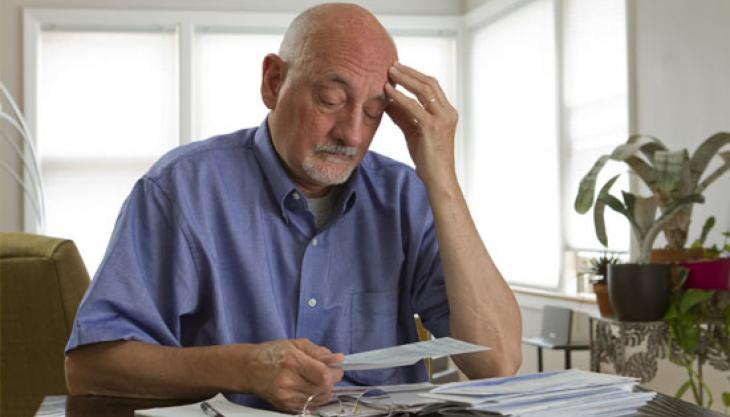Should You Repay Debts Discharged in Bankruptcy in an Attempt to “Do the Right Thing”?
Submitted by Rachel R on Mon, 05/26/2014 - 7:54pm

Be careful about paying bills after bankruptcy discharge
Image source: Frits Ahlefeldt-Laurvig via Flickr Creative Commons
After a Chapter 7, most of your unsecured debts will be discharged. This includes credit card bills, medical bills, personal loans and any balances owed on a foreclosed home or repossessed car. Some income taxes can be relieved in a bankruptcy and if your circumstances are especially dire, you may also get some student loan relief. What will survive your Chapter 7 typically is more recent tax bills, your mortgage (if you're keeping your home), your vehicle loan (if you're keeping that too) and student loans.
After a Chapter 7 discharge, most of our clients feel an overwhelming sense of relief, but occasionally some may feel bad about not being able to pay certain of their debts. You should have improved finances and cash flow after you file Chapter 7 since a great many of your bills will be gone and may feel like you should go back and try to pay some of the debts that were discharged because you want to “do the right thing.”
What you should do if you want to pay bills you're struggling with now
If you don't want your debts discharged, you may want to consider a Chapter 13 instead of a Chapter 7. This gives you more time to pay your bills and ultimately discharges remaining balances on unsecured debt after a three to five year payment plan. The main advantage to Chapter 7 is that it clears out as many of your debts as possible. If you can afford to pay some of your debts, Chapter 13 may be preferable. Your North Carolina bankruptcy attorney can advise which plan is better for your financial circumstances.
What you should do if you have bills you want to pay after you get your discharge
There are some bills that you may especially want to pay after your Chapter 7 like personal loans owed to friends or family. While Chapter 7 does rid you of any legal obligation to pay discharged bills and blocks creditors from collection actions, it won't make things easier at family reunions if you don't pay back loans made to you by a sibling, grandparents parents or close friends. These are the debts that we most frequently hear from our clients that they regret not paying and want to make “right.” This is understandable and it's entirely your choice to voluntarily pay a discharged debt.
What you should be careful of if you do start paying a debt that was discharged
If you do want to pay back a bill that was discharged, you need to be savvy. Paying back relatives is less of a risk, but if you decide to pay back a credit card or other major creditor, you may cause yourself a problem. If you start paying back the bill but don't pay it in full, the creditor could go back to the bankruptcy court and say you waived your discharge rights by paying on the debt. This means that the debt could actually be reinstated because you were trying to “do the right thing.” A smaller bill paid back to your dentist or primary care doctor you still have a relationship with, or a family member, is understandable, but most others should be let go for good.
What you should consider before paying back any debt discharged in Chapter 7
The whole point of bankruptcy is to get you a financial fresh start. This means letting the debt go and focusing on your financial future. You will need to take out new credit after your discharge and you should focus on your debts that are not discharged, your current bills, building up your savings and servicing any new debts you accumulate. After a bankruptcy, you are best served by focusing on the future and letting go of the past.
If you are struggling with your bills, Chapter 7 bankruptcy may be the best solution for you. Contact the law offices of John T Orcutt for a free consultation today to find out how a North Carolina bankruptcy can get you the permanent debt relief you need.
Debts Hurt! Got debt? Need help? Get started below!
Serving All of North Carolina
- Bankruptcy Attorneys Raleigh NC (North)
- Bankruptcy Attorney Fayetteville NC
- Bankruptcy Attorney Durham NC
- Bankruptcy Attorneys Wilson NC
- Bankruptcy Attorneys Greensboro NC
- Bankruptcy Attorneys Southport NC
- Bankruptcy Attorneys Wilmington NC
Bankruptcy Attorneys Raleigh NC (North)
6616 Six Forks Rd #203 Raleigh, NC 27615 North Carolina
Tel: (919) 847-9750

Bankruptcy Attorney Fayetteville NC
2711 Breezewood Ave Fayetteville, NC 28303 North Carolina
Tel: (910) 323-2972

Bankruptcy Attorney Durham NC
1738 Hillandale Rd Suite D Durham, NC 27705 North Carolina
Tel: (919) 286-1695


Bankruptcy Attorneys Greensboro NC
2100 W Cornwallis Dr. STE O Greensboro, NC 27408 North Carolina
Tel: (336) 542-5993

Bankruptcy Attorneys Southport NC
116 N Howe St. Suite A Southport, NC 28461 North Carolina
Tel: (910) 218-8682

Bankruptcy Attorneys Wilmington NC
116 N. Howe Street, Suite A Southport, NC 28461 North Carolina
Tel: (910) 447-2987
